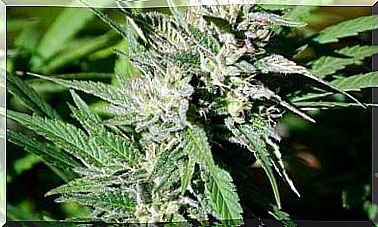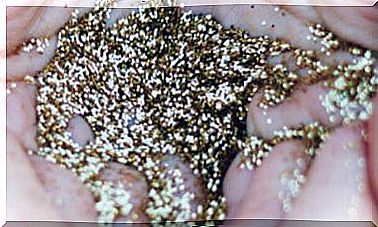Science Has Discovered Why The Forest Relaxes You
A bacteria found in the forest air protects you against stress and reduces inflammation that can affect the brain.

The finding of scientists from the University of Colorado in Boulder (United States) is spectacular. They have discovered that a bacterium that floats in the forest air is capable of reducing inflammation in the brain and thus making it more resistant to the consequences of stress.
If the discovery is reproduced in clinical trials, it opens the possibility of creating probiotic supplements that protect against diseases such as post-traumatic stress disorder, anxiety and depression.
But anyone can now benefit from the anti-stress properties of the forest: you just have to walk and breathe deeply.
The beneficial bacteria of the forests, friend of your brain
The Mycobacterium vaccae is the protagonist of the story. This bacterium, belonging to the Mycobacteriaceae family , lives naturally in forest soil and can be found in suspension in the air. Its name comes from the Latin vacca (cow), since it was isolated for the first time in cow dung.
It is one of those responsible for the aroma that we perceive in the forest and for some years its immune properties have been investigated that could be useful in the treatment of asthma, cancer, psoriasis, dermatitis or depression.
1. It favors the generation of new neurons
It is known to stimulate the generation of serotonin and norepinephrine in the brain, thereby promoting the generation of new neurons (this has been proven in mice). It also reduces anxiety.
Now scientists at the University of Colorado have discovered that injecting the bacteria into rodents boosted brain chemistry toward an anti-inflammatory state.
One of the authors, Dr. Matthew Frank, has said that “if you could do that in people, it could have broad implications for a number of neuroinflammatory diseases.”
2. Reduces inflammation and the consequences of stress
Research suggests that stress-induced brain inflammation increases the risk of such disorders, in part by affecting neurotransmitters that influence mood, such as norepinephrine or dopamine.
Anxiety, post-traumatic stress disorder, and other stress-related mental disorders affect one in four people sometime in their lifetime.
In general, inflammation is associated with depression and anxiety. That is why these mood swings accompany many physical illnesses.
Research also suggests that trauma, illness, or surgery can sensitize certain regions of the brain, establishing an inflammatory response that increases future vulnerability in stressful situations. Then anxiety becomes a trigger for mood disorders and cognitive decline.
3. It makes you more resistant to anxiety
“We found that Mycobacterium vaccae blocks the sensitizing effects of stress, creating a long-lasting stress-resistant phenotype in the brain,” Frank said.
That is, if you have suffered an illness or trauma, nothing better than walking through a forest or, if you can, a vacation in the countryside.
The researchers, led by Dr. Christopher Lowry, set out to determine what exactly happens in the brain when it is exposed to the bacteria.
4. Increases the expression of protective genes
They observed rats injected with the bacteria had higher levels of the anti-inflammatory protein interleukin-4 in the hippocampus, a region of the brain responsible for modulating cognitive function, anxiety and fear.
And when laboratory animals were subjected to a stressful situation, they also showed low levels of an anxiety-induced protein, alarmin or HMGB1 protein, and at the same time increased expression of the CD200R1 gene, which is related to an anti-inflammatory state in brain.
Other bacteria can have a similar effect
Lowry has pointed out that this discovery is consistent with the properties associated with probiotics in general, which produce effects on cognitive function, anxiety and fear.
“These beneficial microorganisms, or signals derived from these microbes, somehow make their way into the hippocampus and induce an anti-inflammatory state,” he said.
Lowry anticipates that in the future probiotic supplements with M. vaccae may be administered to people who have suffered or will experience high stress situations to control its negative effects and improve the body’s response.
“More research is needed, but it is possible that other strains of beneficial bacteria or probiotics may have a similar effect on the brain,” he said.









